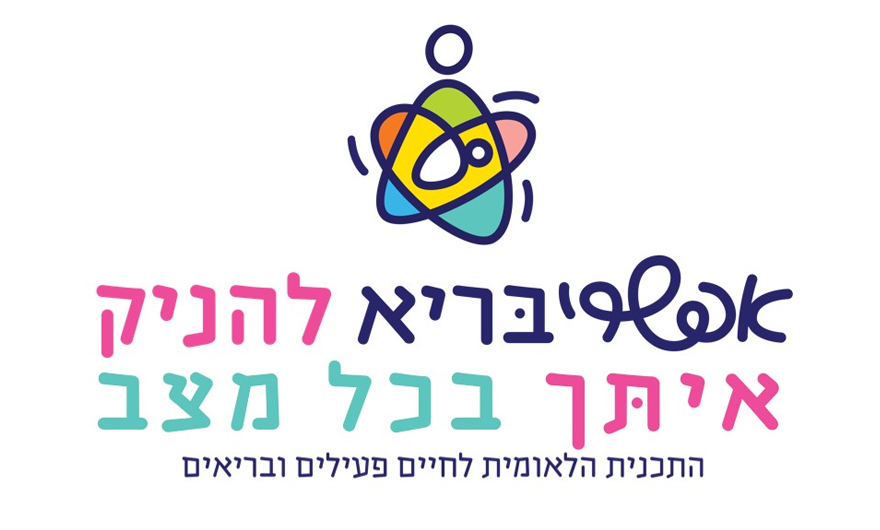
Coping with stressful and anxiety-filled situations are a challenge for every person, and the mother and baby live in a world where there are stressful and anxiety-filled situations (on a personal level, family level, national level and so on). What about breastfeeding?
In a state of extreme anxiety or fear, it may be possible that the milk flow will decrease, but this response, just like other physical responses to anxiety and stress, is temporary and will pass soon enough. In contrast, the act of breastfeeding facilitates the release of anxiety-relieving hormones which soothe both mother and baby. Skin-to-skin contact also contributes to the baby and mother's feeling of safety and calm.
During stressful and anxiety-filled situations, mother's milk is the cleanest and safest food for babies. It is nutritionally suitable for the baby, always available, independent of external factors, protects the baby from diseases, mainly diarrhea and respiratory tract infections, increases and reinforces the baby's immune response, always at the right temperature, and assists in relieving the mother's stress and anxiety through the soothing hormones secreted during breastfeeding.
Here are a few tips:
- The production of milk continues for as long as you continue to place your baby against your breast and to breastfeed.
- When you are temporarily unable to breastfeed: It is recommended that you express the milk either by pump or by hand at the same frequency as the number of breastfeedings. This way you'll maintain the production of milk and prevent congestion, blockage of the milk ducts, inflammations and so on.
- During stressful and anxiety-filled situations, a certain decline in the immune resistance may occur. Therefore, it is especially important to continue breastfeeding during these times, as continued breastfeeding provides the baby with maximum protection.
- The act of breastfeeding facilitates the release of anxiety-relieving hormones which soothe both mother and baby. Skin-to-skin contact also contributes to the baby's feeling of safety and calm.
- Breastfeeding is a solution for feeding the baby in bustling and crowded places as well as in places with low hygiene conditions.
- During routine times, it is recommended that you prepare a cozy "breastfeeding niche" in the reinforced security room in your apartment or in the communal shelters, if there are any, including a comfortable seating area, water, wipes and tasty and healthy food, to give you a sense of security in cases where you are unable to leave the reinforced security room for some time..
- You can go back to breastfeeding after you've stopped breastfeeding and switched to formula through professional support and use of the proper technique.
- Mothers whose eating patterns have changed or who eat less as a result of an emergency situation or due to stress and anxiety can still breastfeed in a normal, efficient and nutritious way.
Breastfeeding Week 1-7.8.2021
Ahead of Breastfeeding Week: Meetings with nurses at Tipat Halav (family health centers) on topics like breastfeeding, returning to work and breastfeeding and weaning from breastfeeding.
Meetings topics
- Breastfeeding – Let's talk about it (a meeting that deals with anything that you're interested in with regard to breastfeeding and allows you to ask questions about this matter)
- Breastfeeding and returning to work
- Weaning from breastfeeding
Join the meetings
Sessions are open for everyone free of charge, you are only required to sign up in advance on Tiponet – online guidance meetings for parents.
Further information on breastfeeding – in the national call center of Tipat Halav, during Breastfeeding Week and at any time
A newborn baby requires food, love and safety. These needs are met during breastfeeding, during which the mother also gets to enjoy her own magical moments of serenity. However, breastfeeding can be challenging. Breastfeeding consultants are there for you in the national call center of Tipat Halav, to provide you with extensive professional guidance and to answer all of your questions.
We suggest that you call us when you're seated comfortably and the baby is in your arms. Our breastfeeding consultant could perform a breastfeeding assessment, keep in touch you with later and be available to you every day. This unique service of breastfeeding consultants is provided to all mothers and babies in Israel during both routine times and emergencies.
During the outbreak of the coronavirus pandemic, our breastfeeding consultants have provided mothers with answers and guidance with regard to breastfeeding during isolation or sickness and have guided mothers with regard to breastfeeding and the coronavirus vaccine. The call center offers answers in areas under the responsibility of Tipat Halav and which can be provided through distance consulting, such as side effects after vaccination, development, breastfeeding, crying, difficulty sleeping and will provide you with information about preventive care services in Israel. The call center is staffed by Tipat Halav nurses, breastfeeding consultants, sleep consultants and nutritionists specializing in young children.
This service is made available in the following languages: English, Arabic, Russian, Amharic and French.
Families treated by the Ministry of Health's Tipat Halav clinics receive answers based on the clinical information found in the medical records.
The call center is available Sunday through Thursday from 16:00 to 21:00 and on Friday from 8:00 to 13:00.
Calling the center: Call the Ministry of Health's call center at *5400, extension 9.
Further activities that take place at local Tipat Halav clinics and Health bureaus will be published.
More on the importance of breastfeeding
- EfshariBari Breastfeeding – a Healthy Start in Life
- EfshariBari Breastfeeding, Family-Friendly Breastfeeding
- Breastfeeding-supporting workplace



